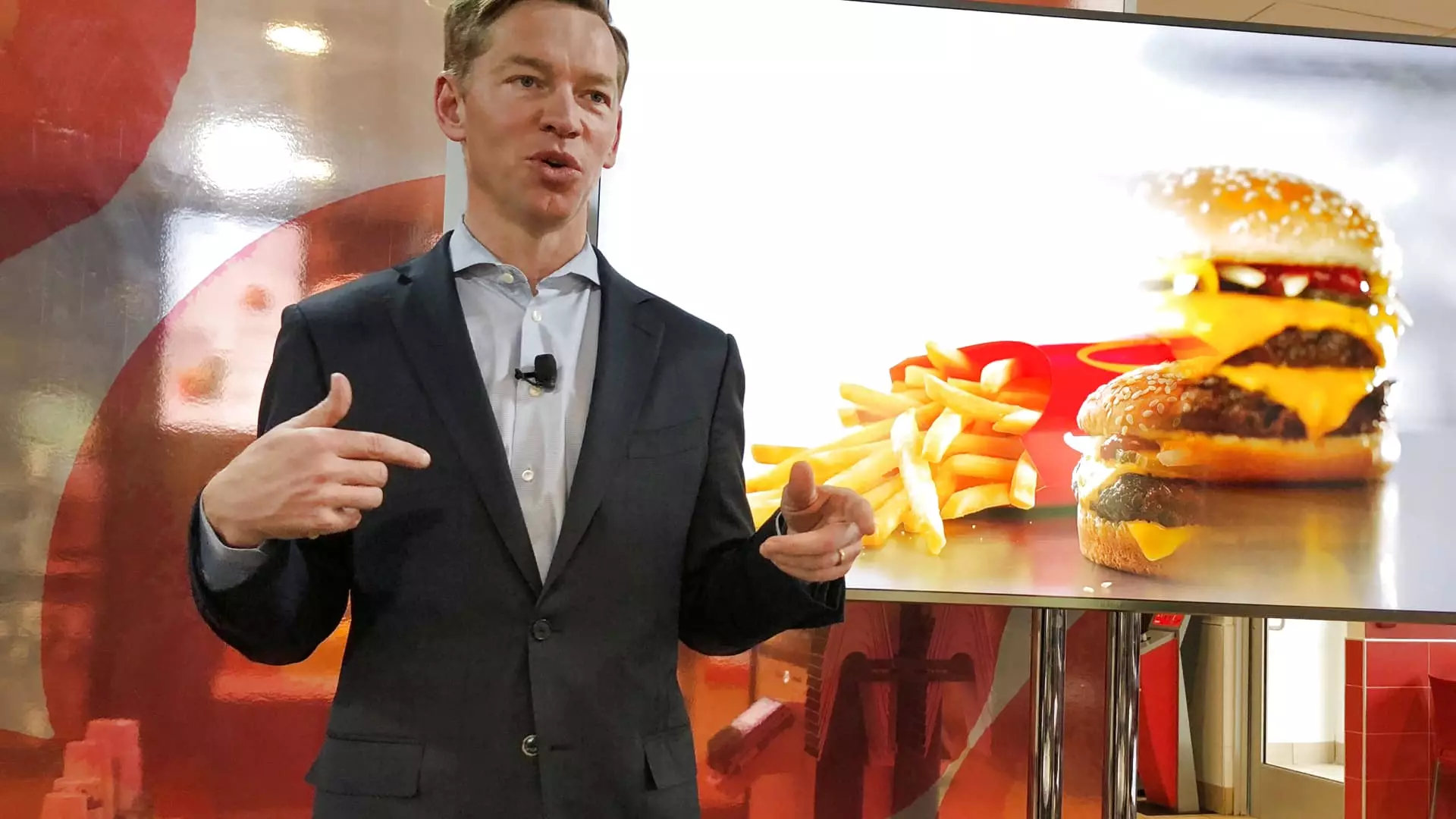In a rapidly evolving food service environment, unexpected health crises can significantly impact brand reputation and consumer trust. Recently, McDonald’s faced a serious challenge when health authorities linked a deadly E. coli outbreak to its popular Quarter Pounder burgers. This outbreak did not just endanger the health of customers; it also threatened the brand’s long-standing image as a reliable fast-food provider. CEO Chris Kempczinski and his team soon found themselves at the forefront, tasked with containing the situation, addressing public fears, and reinstating confidence in their product.
Kempczinski’s disclosure during an investor call that the crisis is “behind us,” underscores the company’s strategic approach to crisis resolution. Despite the severity of the situation, he pointed out that the outbreak appears contained, indicating that McDonald’s aims to shift the narrative toward recovery. The decision to pull Quarter Pounder burgers from approximately 900 locations reflects a swift response, demonstrating that the company prioritizes consumer safety over immediate profits. Subsequent forensic investigations pointed towards slivered onions as the suspected source of the contamination, which led to McDonald’s ceasing sourcing from the implicated supplier, underscoring an urgency to rectify the problem.
In a move to reassure consumers, McDonald’s announced the return of the Quarter Pounder to its menu, albeit without the slivered onions. Such adaptability suggests an understanding of market dynamics and customer sentiment; recognizing that consumers crave familiarity, even amid tumultuous circumstances.
The immediate aftermath of the outbreak led to a noticeable decline in restaurant traffic and daily sales, reflecting the power of consumer perception. CFO Ian Borden acknowledged this downturn, indicating that people were understandably apprehensive about the safety of the food. However, he remained optimistic, asserting an expectation of minimal long-term impact on the business. This hopeful outlook contrasts sharply with the reality of McDonald’s recent financial performance, which saw a slight increase in same-store sales domestically but a more significant reduction internationally.
The financial fallout from the outbreak highlights the volatility fast-food chains face in the wake of health crises. As consumers continued to express concern, McDonald’s stock fluctuated but ultimately stabilized, indicating a measure of investor confidence in the leadership’s crisis management capabilities.
Public reassurance became a central theme for McDonald’s post-outbreak strategy. Kempczinski’s public apology, infused with genuine concern about customer well-being, served both as an acknowledgment of the gravity of the situation and as an attempt to foster empathy and trust. The CEO’s heartfelt message was pivotal, as it emphasized accountability, crucial in rebuilding consumer relations.
In the overarching context of fast food, where perception can make or break a brand, McDonald’s proactive measures to communicate with its clientele become essential. Fostering an environment of transparency can enhance consumer loyalty and protect the brand against future controversies.
As McDonald’s moves past this health scare, its focus must turn to long-term brand healing. The experience presents both challenges and opportunities; understanding consumer behavior in light of health events will be vital for navigating future crises. The potential innovations to food sourcing and safety protocols can align the company more closely with modern consumer expectations for health and safety.
The E. coli outbreak serves as a stark reminder of the fast-food industry’s fragility amid health concerns. How McDonald’s leaders respond to and learn from this incident will dictate not just their recovery, but also the broader narrative around food safety and corporate responsibility in the fast-food sector. Ultimately, the ability to restore consumer confidence marks a fundamental step in the journey back to normalcy and sustained growth.

